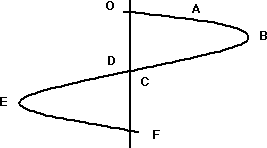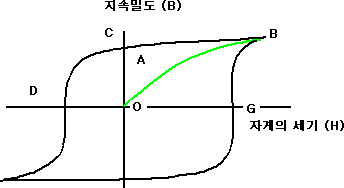
Phenomenon in which the response of a physical system to an
external influence depends not only on the present magnitude of that influence
but also on the previous history of the system.

|

|
Expressed mathematically, the
response to the external influence is a doubled-valued function; one value
applies when the influence is increasing, the other applies when the influence
is decreasing. Magnetic hysteresis occurs when a permeable material like soft
iron is magnetized by being subjected to an external magnetic field. The induced
magnetization tends to lag behind the magnetizing force. If a field is applied
to an initially unmagnetized sample and is then removed, the sample retains a
residual magnetization (it has become a permanent magnet). The graph of the
magnetic induction B versus the magnetic field H is called a
hysteresis loop. The area of the loop is proportional to the energy dissipated
as heat when the system goes through a cycle; this represents a considerable
energy loss in alternating-current machinery. Thermal hysteresis occurs when the
value of a given property of a body depends not only on the body's temperature
but also on whether the temperature is rising or falling. An example is the
dielectric constant versus temperature for certain crystals. Another kind of
hysteresis is a common feature of control or cybernetic systems.
|


